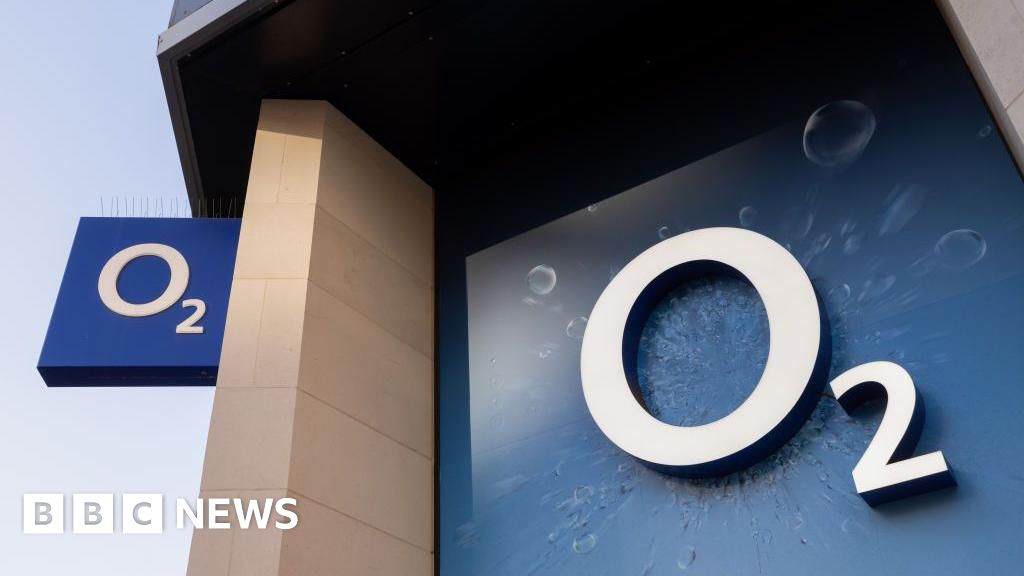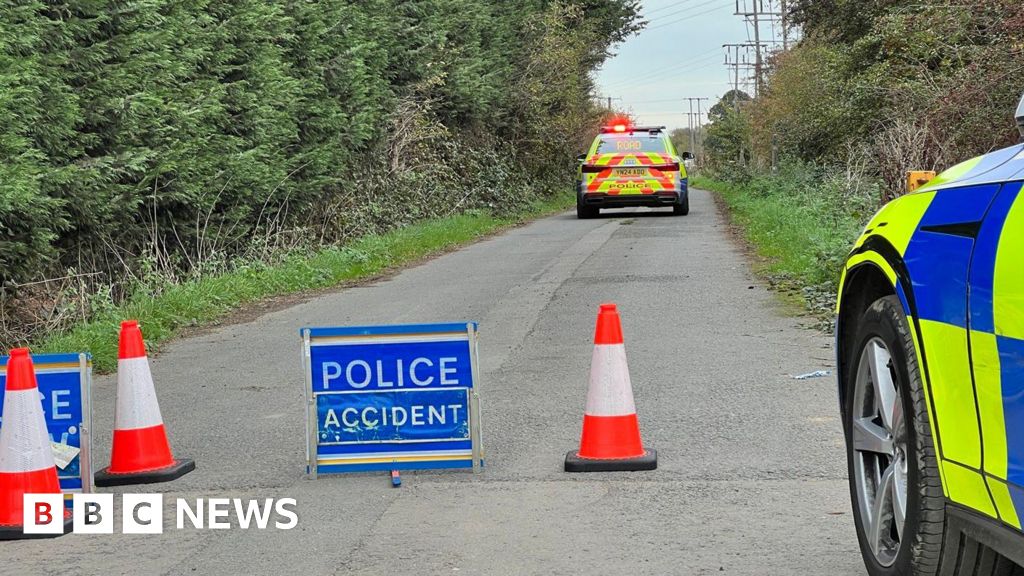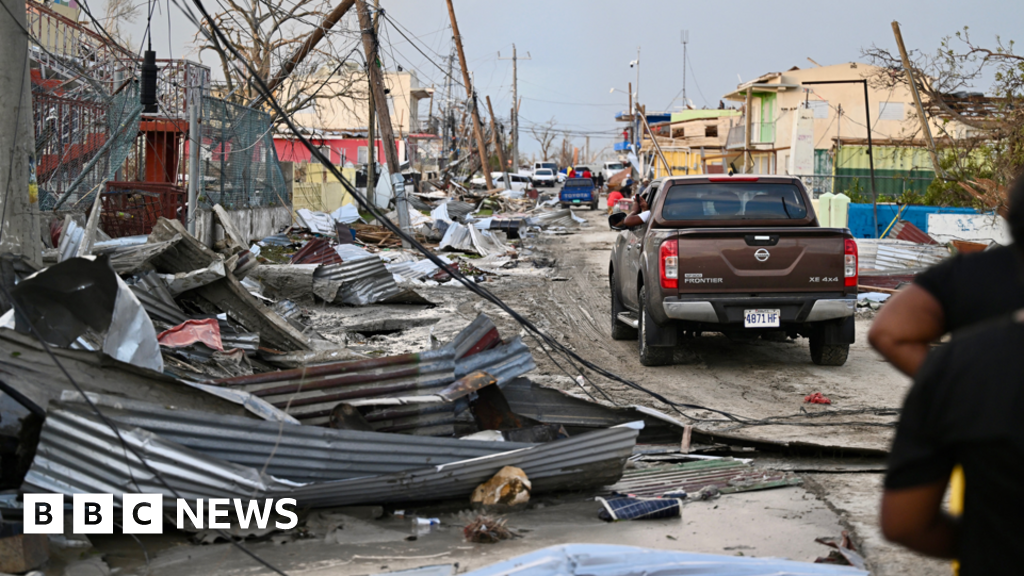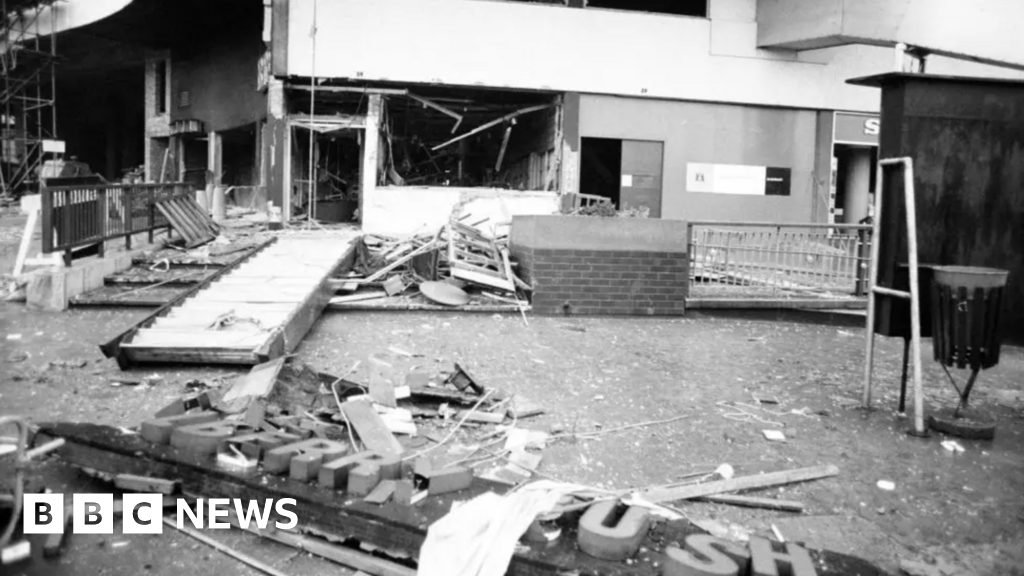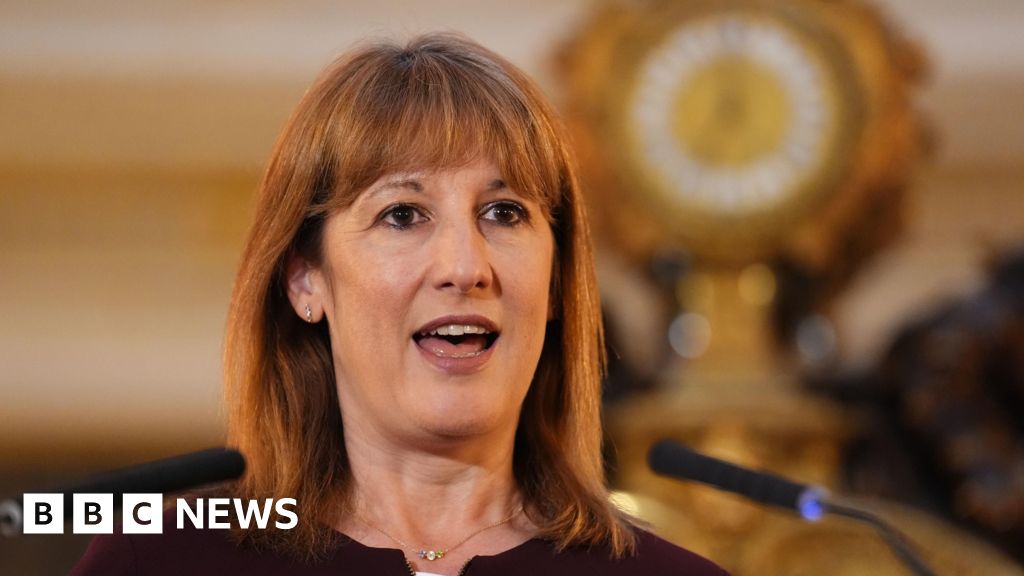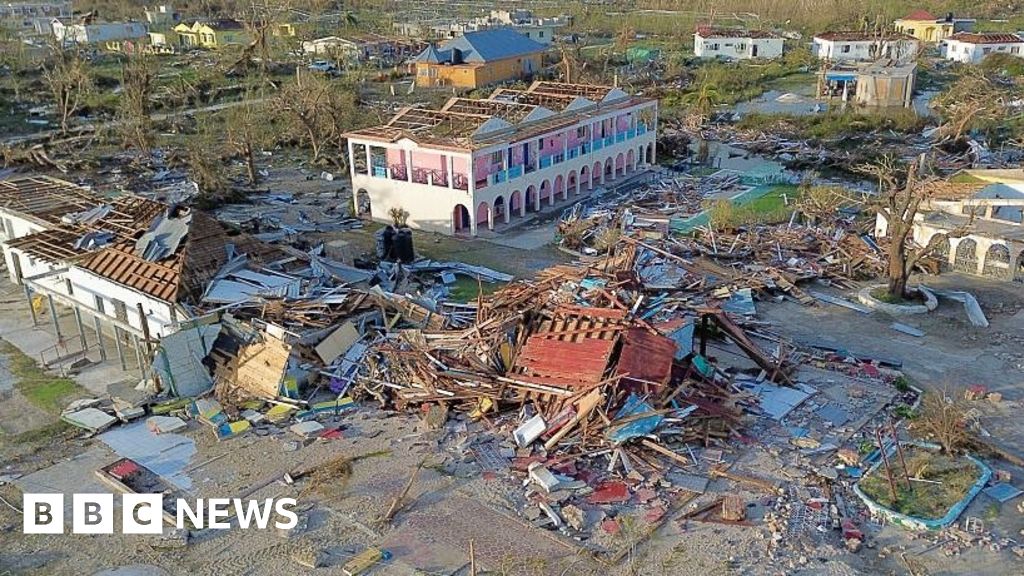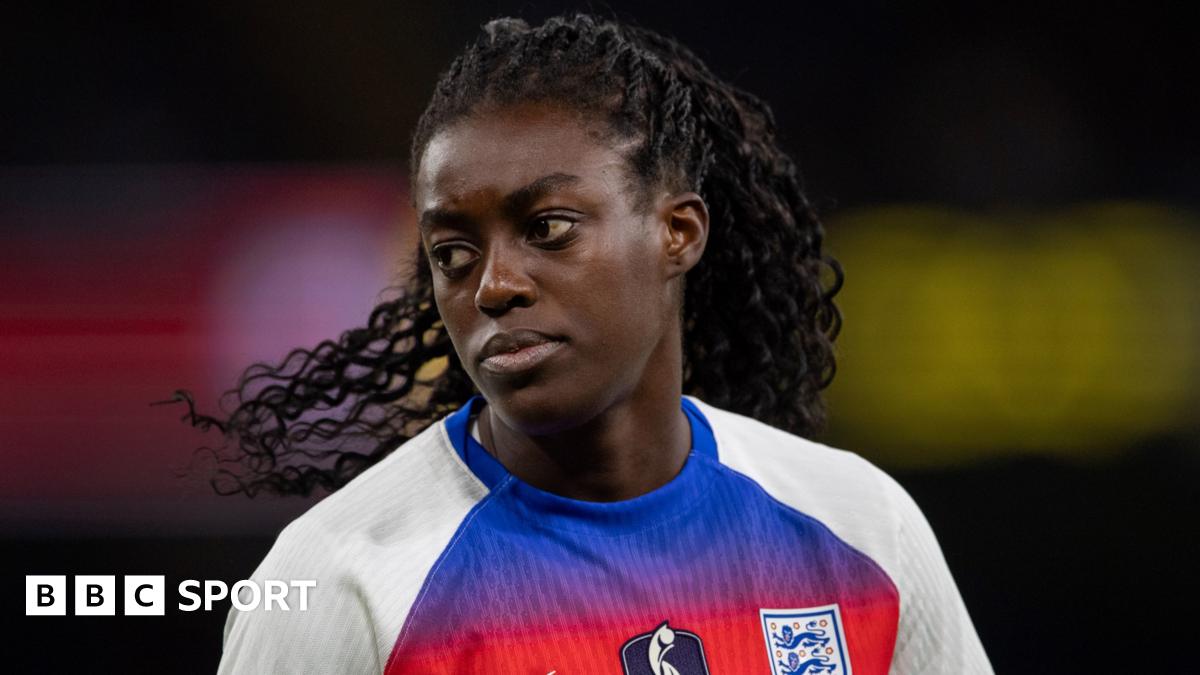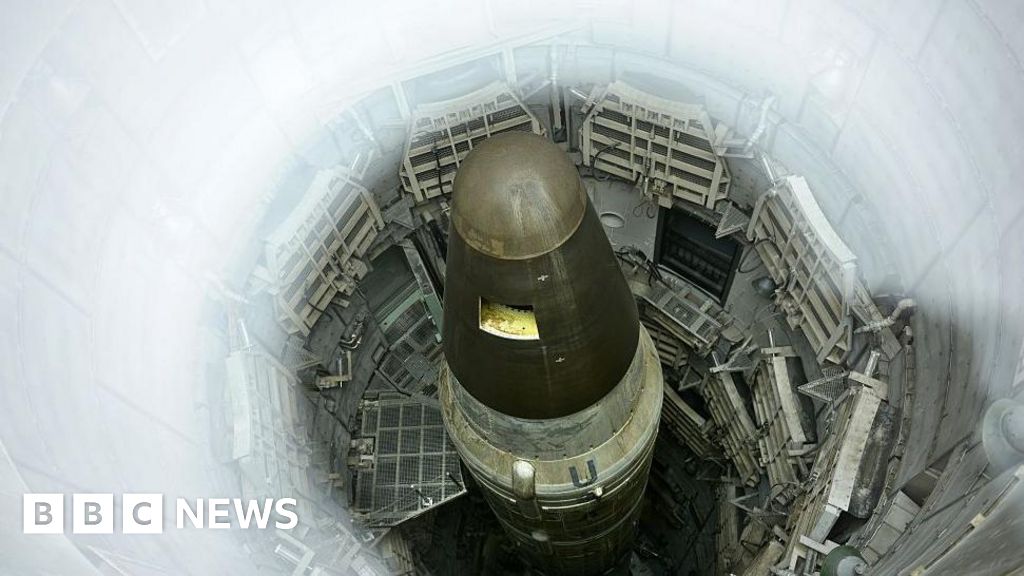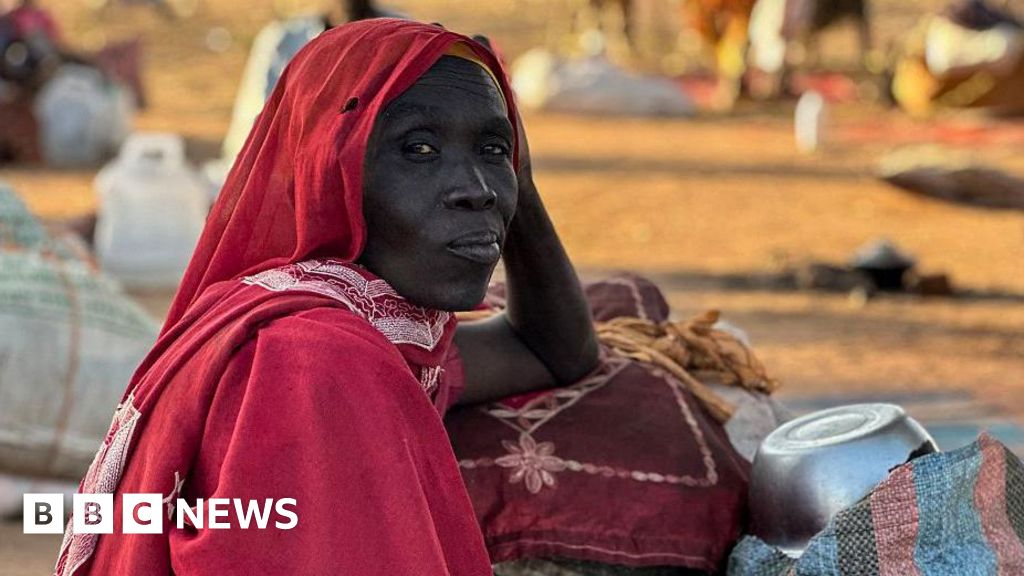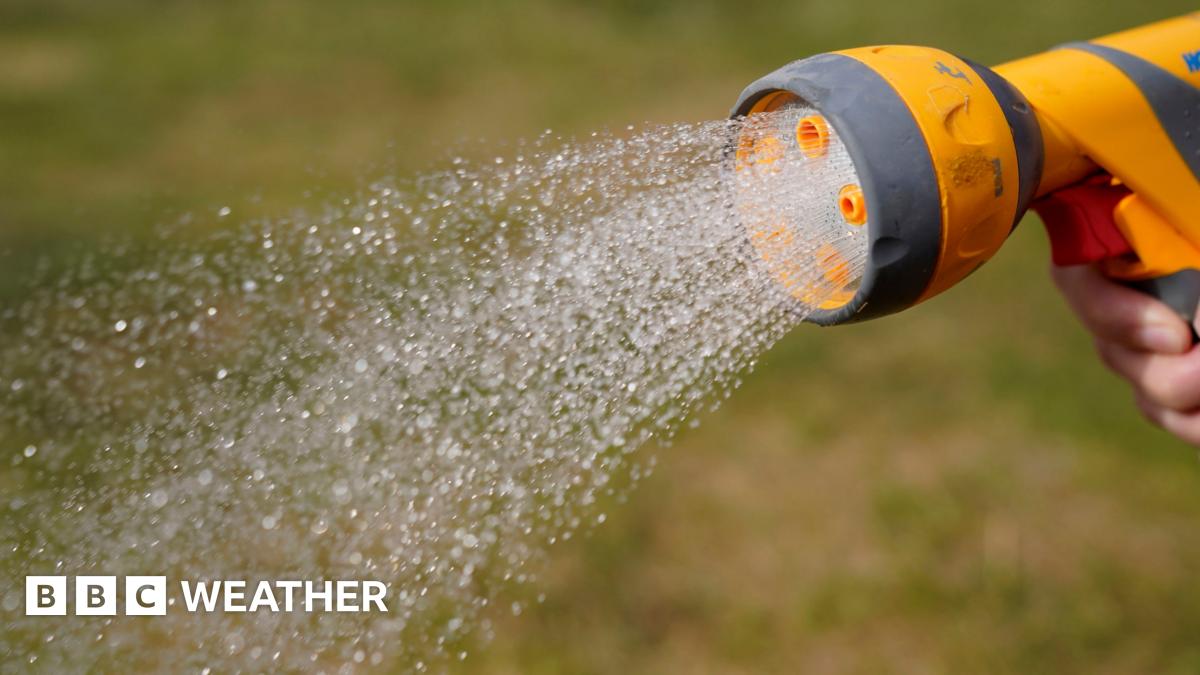Paul Hudson
BBC Yorkshire climate and environment correspondent
Steve Jones
BBC News, Yorkshire

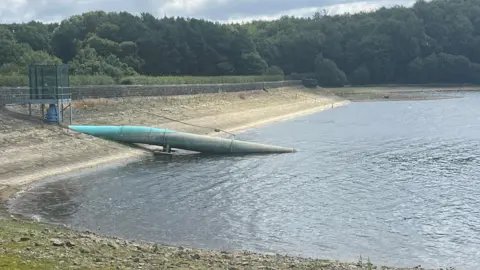 BBC
BBC
Reservoir levels across Yorkshire are at a record low, according to Yorkshire Water
A hosepipe ban affecting more than five million people will come into effect from Friday - the first to be declared in the UK this year.
Yorkshire Water said the region had experienced its driest and warmest spring on record with only 15cm of rainfall between February and June - less than half of what would be expected in an average year.
Yorkshire is the first part of the UK to face restrictions on water usage amid an extended spell of dry weather nationwide.
The announcement of the ban received a mixed reaction from shoppers in Leeds with some telling the BBC they felt the company needed to address the number of leaks, while others said people should do more to conserve water.
Dave Kaye, director of water at Yorkshire Water, said the restrictions "are intended to make sure we have enough supply for the essential needs of people across the region this year and next as well as making sure we are able to protect our local environment".
The ban applies to customers across much of Yorkshire, parts of North Lincolnshire and parts of Derbyshire.
It prohibits the use of a hosepipe for activities such as watering the garden, washing the car or filling a paddling pool. Anyone flouting the restriction could be fined up to £1,000.
The ban comes after the Environment Agency declared a drought across the region last month.
Nationally, England recorded its warmest June on record after the driest spring for 132 years.
According to Yorkshire Water, reservoir levels currently stand at just over 50% - a record low for the time of the year and "significantly below" the average for early July, which is nearer 80%.

 Fiona Callow/BBC
Fiona Callow/BBC
Stuart Thomson said his water bill was "extortionate"
Shoppers in Leeds expressed concerns about the introduction of the ban.
Stuart Thomson said Yorkshire Water should bring prices down to reflect the introduction of restrictions.
"My bill has gone up and I think it's extortionate and I'm just in a one-bedroom flat.
"If they were bringing the prices down I wouldn't mind, but we're paying for something we can't use."
Katie Naylor said she was not surprised by the decision given the recent hot weather.

 Fiona Callow/BBC
Fiona Callow/BBC
Katie Naylor said people needed to take "more ownership" of their water usage
"We've got a water butt so none of our flowers will suffer.
"I think we do waste a lot of water and maybe we should be taking a bit better care of it ourselves."
Meanwhile, Barbara May said described the decision by Yorkshire Water as "awful".
"These companies waste a lot of water by not coming to fix the leakers quickly enough," she said.

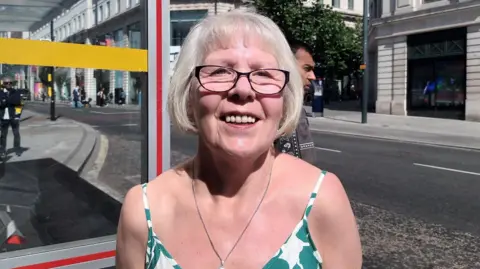 Fiona Callow/BBC
Fiona Callow/BBC
Barbara May said she did not agree with hosepipe ban
Hours after the announcement, Thames Water warned its 16 million customers across London and the Thames Valley that they could also face a hosepipe ban because of the continued dry weather.
A spokesperson said: "The ongoing dry weather and increased customer demand is impacting our water supplies and unless the situation changes significantly, we will need to put usage restrictions, including a hosepipe ban, in place to ensure taps keep running for customers' essential use.
"On Monday 30 June, in the Swindon and the Oxfordshire areas our customers' daily demand for water reached that last seen during the 2022 drought."

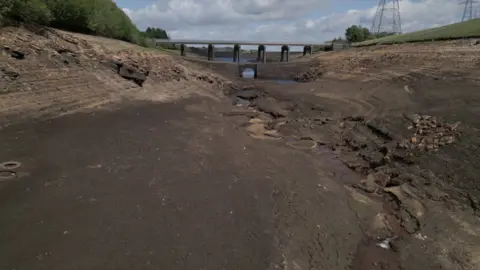
Baitings Reservoir, near Ripponden, has almost completely dried out
Mr Kaye said water supplies would normally be topped up by rainfall in spring but reservoir stocks had been falling since the last week of January.
Recent downpours had "helped slightly", he added, but he said that "constant high temperatures and more dry weather" had only increased water usage.
"With more dry weather forecast in the coming weeks, it is likely our stocks will continue to fall.
"We need to act now to maintain clean water supplies and long-term river health."
Mr Kaye said the ban would be in place "until the region has seen significant rainfall to bring reservoirs and groundwater stocks back to where they need to be".
He said: "This may last into the winter months."

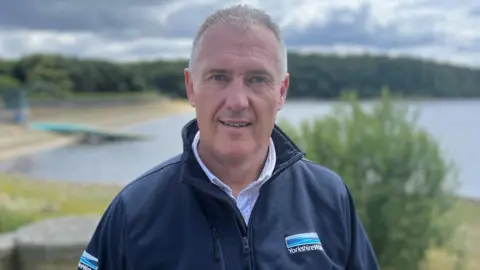 Paul Hudson/BBC
Paul Hudson/BBC
Dave Kaye, pictured, has warned the ban could last until the winter
Questions are likely to be asked about why the region is facing its second hosepipe ban in just three years and whether its water supply is robust enough.
Yorkshire's reservoirs, which were full at the end of January, have lost half of their capacity in just five months.
There is no doubt that rainfall has been exceptionally low since February.
But at a time when the climate is changing – there have been three exceptionally dry springs in the past 14 years - the demand for water has increased sharply.
Yorkshire's population has grown by approximately 500,000 since 2000 but no new reservoirs have been built for more than 40 years.
In the short term, Yorkshire Water will be hoping the measures announced today will be enough to slow the fall in reservoir levels until the rain returns and replenishes supplies.
But, in the longer term, with the combined challenges of climate change and population growth, water restrictions may become much more common.
Listen: Yorkshire Water's Dave Kaye on why the hosepipe ban is needed now

 3 months ago
78
3 months ago
78
